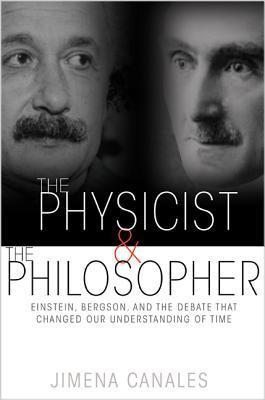What do you think?
Rate this book


"In illuminating a historic 1922 debate between Albert Einstein and Henri Bergson about the nature of time, Canales marks a turning point in the power of philosophy to influence science."--Publishers Weekly
"Sparks—both incendiary and illuminating—fly from the collision of two giants!"--Booklist, starred review
"This fascinating, scholarly, readable look at physics and epistemology will interest readers of science, history, philosophy, and biography."--Library Journal, starred review
"Whether or not you agree, this humane and melancholy account of how two talents misunderstood each other will linger in the mind."--New Scientist
"[Canales] weaves a tale around Europe and to America. . . . [Her] subject raises important core philosophical issues, like the scope of philosophy itself."--Michael Ruse, The Chronicle of Higher Education
"This fascinating book traces a debate about the nature of time. . . . Canales has done a masterful job of research and explication. Her account of the debate is lively, the background of it is interesting, and the debate’s ramifications as filtered through other minds are downright exciting. Anyone interested in physics or philosophy will have a field day with this book."--Kelly Cherry, The Smart Set
"Canales does sterling work investigating these engagements . . . [A] stimulating book."--Graham Farmelo, Nature
Endorsement:
"The Physicist and the Philosopher explores the nature of time, the meaning of relativity, and the place of philosophical thought in a scientific age. Canales aims to reposition Einstein's work in a field of disputation and give Bergson back the significance he had in his contemporaries' minds."--Cathryn Carson, University of California, Berkeley
488 pages, Hardcover
First published May 25, 2015